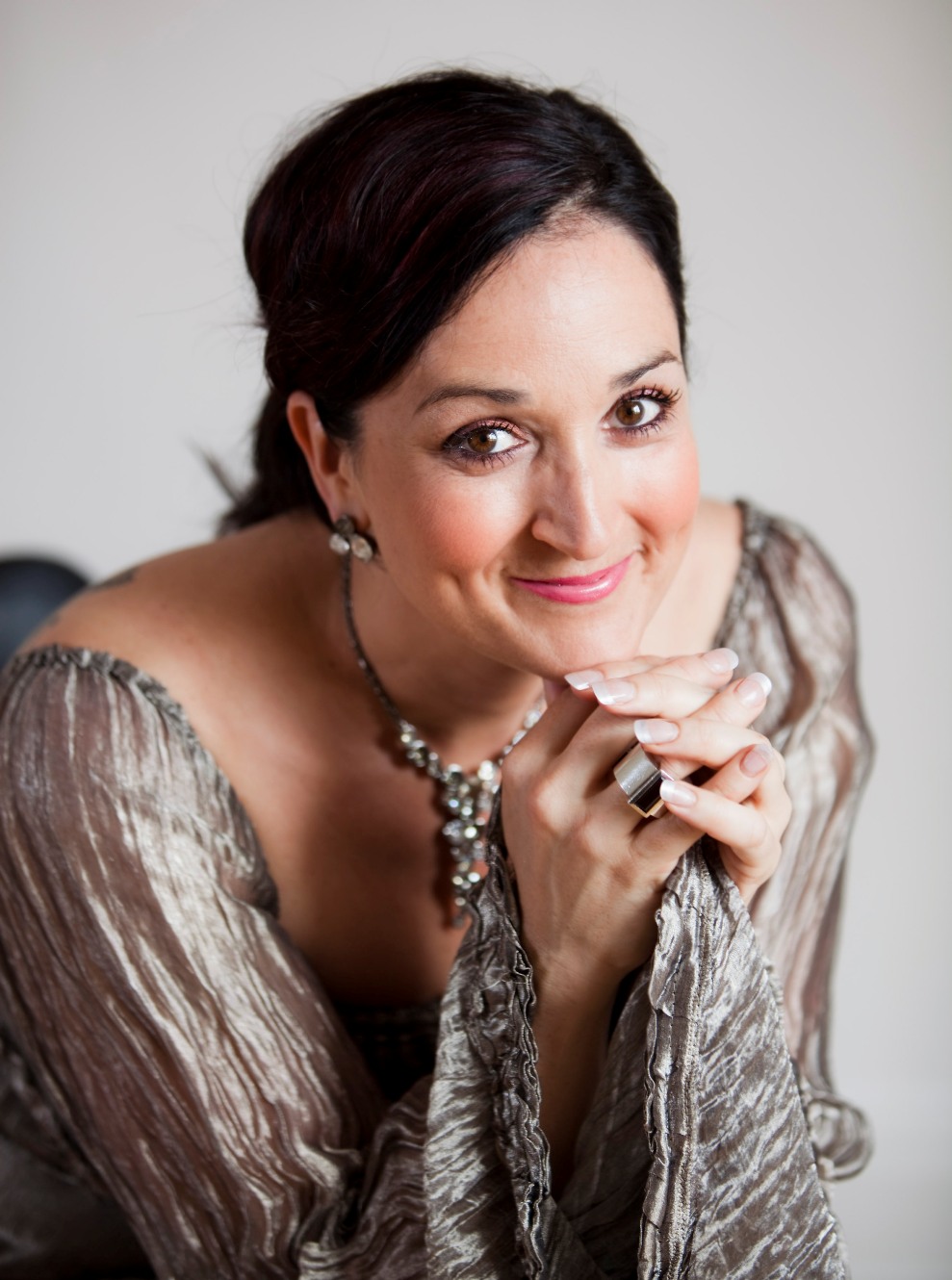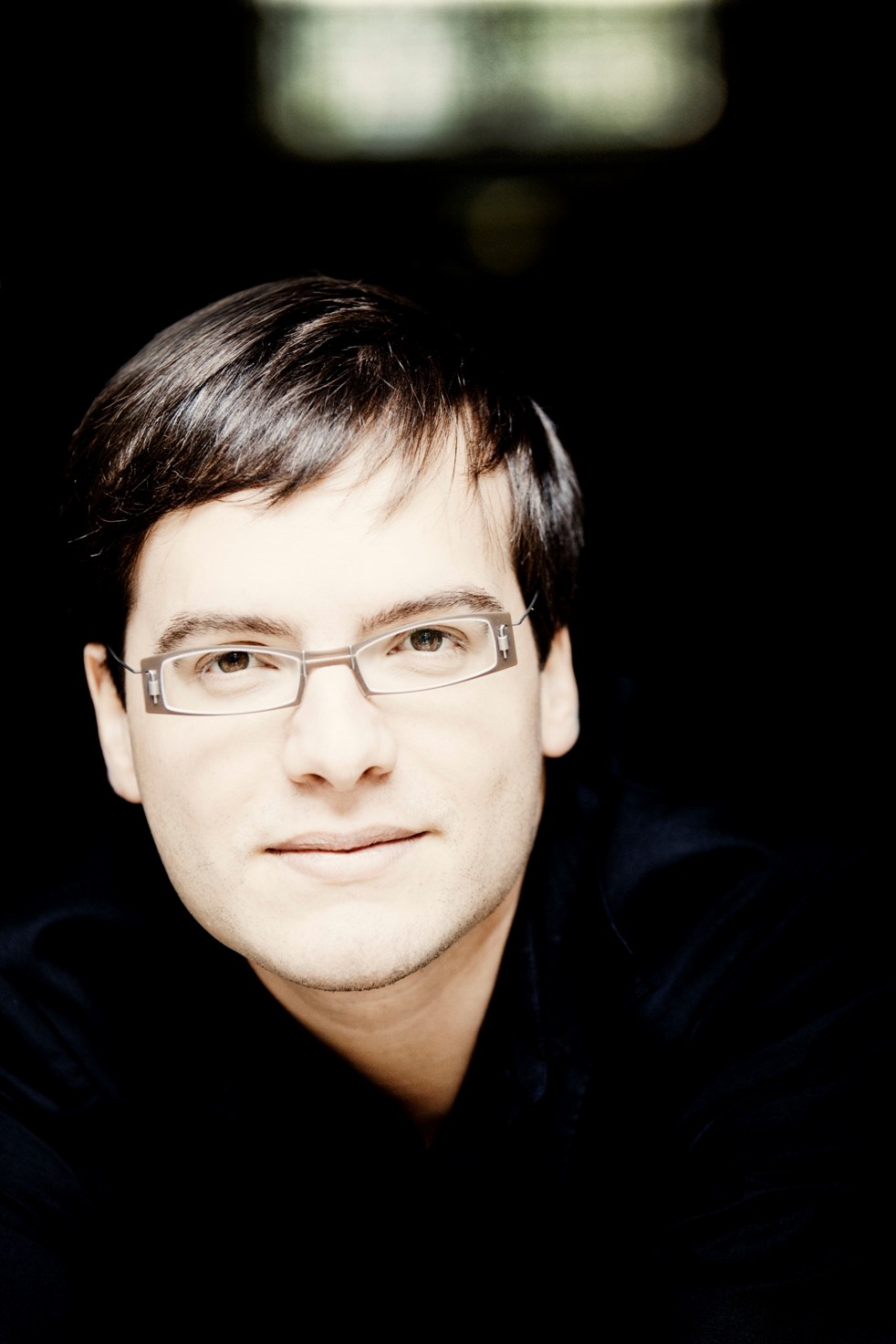Piemontesi, Karnéus, Reiss, Guildhall Symphony Chorus, BBCSO, Bělohlávek, Barbican Hall | reviews, news & interviews
Piemontesi, Karnéus, Reiss, Guildhall Symphony Chorus, BBCSO, Bělohlávek, Barbican Hall
Piemontesi, Karnéus, Reiss, Guildhall Symphony Chorus, BBCSO, Bělohlávek, Barbican Hall
Immaculately prepared Mahler Resurrection and Schumann just miss the heights
Now the BBC Symphony Orchestra’s second Conductor Laureate, Jiří Bělohlávek was always going to deserve a hero’s welcome for taking his players to the finishing line of their six-year cycle through Mahler’s symphonies. As more superficially brilliant Mahler series like Gergiev’s, squeezed into a single anniversary season, seem a distant memory, many of Bělohlávek’s slow burn, deep vein interpretations live on in the mind and soul.
I admit I’ve heard the ideal – Birmingham Symphony Hall, taking the lid off the pressure cooker in a performance stunningly well conducted with the best amateur chorus in the business. Yet a couple of years ago Jurowski also made the most of the Festival Hall spaces, and even Albert’s Kensington colosseum can come into its own. When they could, Bělohlávek and the players used the Barbican dryness to their advantage. Against a striking opening tremolo kicked off by a special resonance in the violas, the lower strings carved their hellfire challenge in granite, a cue taken up by austere, biting wind and sharply defined rhythms throughout the funeral rites of the first movement. When its strikingly contrasted successor gathered its Schubertian Ländler back out of the storm for the second time, pizzicati and harps cut any potential sweetness dead.
 That worked. So did the precise phrasing and deliberate tempo-swerves of the slithery scherzo, satirising human vanity in parallel with Mahler’s companion song which finds St Anthony preaching to a gaping, irredeemable congregation of fish (cleverly, the BBCSO have programmed this already crazy movement’s battle against the splinters of other music and shards of Beckett in Luciano Berio’s Sinfonia next Friday).
That worked. So did the precise phrasing and deliberate tempo-swerves of the slithery scherzo, satirising human vanity in parallel with Mahler’s companion song which finds St Anthony preaching to a gaping, irredeemable congregation of fish (cleverly, the BBCSO have programmed this already crazy movement’s battle against the splinters of other music and shards of Beckett in Luciano Berio’s Sinfonia next Friday).
As Mahler begins to gather his strands towards a judgment day that turns out to be not as terrifying as it at first seems, a Wizard of Oz effect that reveals not illusion but Nirvana, the journey occasionally faltered. Neither mezzo Katerina Karnéus (pictured above by Mats Bäcker), pitching her entry uncertainly, nor the youthful Guildhall Symphony Chorus glided into their silences with the ideal velvety magic, though it has to be said that both were as classy as they come once securely under way. There was certainly no need for the extra 100 voices the Barbican platform can't accommodate when these young choral singers had so many trained operatic singers in their midst. One of their sopranos might have soared more luminously out of the resurrection chorale than Chen Reiss, though like Karnéus she soon found her feet.
The graves yielded up their dead a little tamely in the central uproar of Mahler’s vast apocalyptic finale, and a further reminder of the Barbican’s limited cosmos came with the offstage brass and percussion, sounding more like a Sally Army band in the backyard. But distinction was always there with superlative solos from BBC principals: that peerless trombonist Helen Vollam, a more prominent star of Bělohlávek’s flawless Mahler Three five seasons back, gilded her doleful warnings, while flautist Michael Cox and piccolo-player Kathleen Stevenson brought supernatural stillness to the bird of death that sings just before the crucial chorale. The performance was shot through at every turn with such special focus; what a shame it didn’t take on the cumulative impact of a truly towering Mahler Resurrection.
 Something was lacking, too, in the note-perfect Schumann concerto of the first half: a touch of the grace in the lovely intermezzo which can make you smile, a leap or two for real joy in the vivacious finale. It was an admirable interpretation in so many other respects. Piemontesi (pictured left by Marco Borggreve) executed his runs with dazzling evenness, and brought a silvery tone with careful use of the sustaining pedal in an aristocratic first movement cadenza. An accomplished chamber musician, he also listens to the orchestra which Schumann places on such an even keel with the soloist (special praise again to two more excellent BBC players, oboist Richard Simpson and clarinettist Richard Hosford). No romantic languishing, either, for the nimble rapport of Bělohlávek and Piemontesi, a young pianist clearly destined for great things; but I’d have settled for a little less objectivity and a shade more soul.
Something was lacking, too, in the note-perfect Schumann concerto of the first half: a touch of the grace in the lovely intermezzo which can make you smile, a leap or two for real joy in the vivacious finale. It was an admirable interpretation in so many other respects. Piemontesi (pictured left by Marco Borggreve) executed his runs with dazzling evenness, and brought a silvery tone with careful use of the sustaining pedal in an aristocratic first movement cadenza. An accomplished chamber musician, he also listens to the orchestra which Schumann places on such an even keel with the soloist (special praise again to two more excellent BBC players, oboist Richard Simpson and clarinettist Richard Hosford). No romantic languishing, either, for the nimble rapport of Bělohlávek and Piemontesi, a young pianist clearly destined for great things; but I’d have settled for a little less objectivity and a shade more soul.
- The concert is broadcast live by Radio 3 on the afternoon of Monday 3 December
rating
Buy
Share this article
Add comment
The future of Arts Journalism
You can stop theartsdesk.com closing!
We urgently need financing to survive. Our fundraising drive has thus far raised £49,000 but we need to reach £100,000 or we will be forced to close. Please contribute here: https://gofund.me/c3f6033d
And if you can forward this information to anyone who might assist, we’d be grateful.

Subscribe to theartsdesk.com
Thank you for continuing to read our work on theartsdesk.com. For unlimited access to every article in its entirety, including our archive of more than 15,000 pieces, we're asking for £5 per month or £40 per year. We feel it's a very good deal, and hope you do too.
To take a subscription now simply click here.
And if you're looking for that extra gift for a friend or family member, why not treat them to a theartsdesk.com gift subscription?
more Classical music
 Echo Vocal Ensemble, Latto, Union Chapel review - eclectic choral programme garlanded with dance
Beautiful singing at the heart of an imaginative and stylistically varied concert
Echo Vocal Ensemble, Latto, Union Chapel review - eclectic choral programme garlanded with dance
Beautiful singing at the heart of an imaginative and stylistically varied concert
 Scott, Irish Baroque Orchestra, Whelan, RIAM, Dublin review - towards a Mozart masterpiece
Characteristic joy and enlightenment from this team, but a valveless horn brings problems
Scott, Irish Baroque Orchestra, Whelan, RIAM, Dublin review - towards a Mozart masterpiece
Characteristic joy and enlightenment from this team, but a valveless horn brings problems
 Classical CDs: Voice flutes, flugelhorns and froth
Baroque sonatas, English orchestral music and an emotionally-charged vocal recital
Classical CDs: Voice flutes, flugelhorns and froth
Baroque sonatas, English orchestral music and an emotionally-charged vocal recital
 Kanneh-Mason, Britten Sinfonia, Shave, Milton Court - a grin and a big beaming smile
A pair of striking contemporary pieces alongside two old favourites
Kanneh-Mason, Britten Sinfonia, Shave, Milton Court - a grin and a big beaming smile
A pair of striking contemporary pieces alongside two old favourites
 theartsdesk at the New Ross Piano Festival - Finghin Collins’ musical rainbow
From revelatory Bach played with astounding maturity by a 22 year old to four-hand jazz
theartsdesk at the New Ross Piano Festival - Finghin Collins’ musical rainbow
From revelatory Bach played with astounding maturity by a 22 year old to four-hand jazz
 First Person: Manchester Camerata's Head of Artistic Planning Clara Marshall Cawley on questioning the status quo
Five days of free events with all sorts of audiences around Manchester starts tomorrow
First Person: Manchester Camerata's Head of Artistic Planning Clara Marshall Cawley on questioning the status quo
Five days of free events with all sorts of audiences around Manchester starts tomorrow
 Goldscheider, Brother Tree Sound, Kings Place review - music of hope from a young composer
Unusual combination of horn, strings and electronics makes for some intriguing listening
Goldscheider, Brother Tree Sound, Kings Place review - music of hope from a young composer
Unusual combination of horn, strings and electronics makes for some intriguing listening
 theartsdesk Q&A: composer Donghoon Shin on his new concerto for pianist Seong-Jin Cho
Classical music makes its debut at London's K-Music Festival
theartsdesk Q&A: composer Donghoon Shin on his new concerto for pianist Seong-Jin Cho
Classical music makes its debut at London's K-Music Festival
 Helleur-Simcock, Hallé, Wong, Bridgewater Hall, Manchester review - moving lyricism in Elgar’s concerto
Season opener brings lyrical beauty, crisp confidence and a proper Romantic wallow
Helleur-Simcock, Hallé, Wong, Bridgewater Hall, Manchester review - moving lyricism in Elgar’s concerto
Season opener brings lyrical beauty, crisp confidence and a proper Romantic wallow
 Kohout, Spence, Braun, Manchester Camerata, Huth, RNCM, Manchester review - joy, insight, imagination and unanimity
Celebration of the past with stars of the future at the Royal Northern College
Kohout, Spence, Braun, Manchester Camerata, Huth, RNCM, Manchester review - joy, insight, imagination and unanimity
Celebration of the past with stars of the future at the Royal Northern College

Comments
Have never understood why the